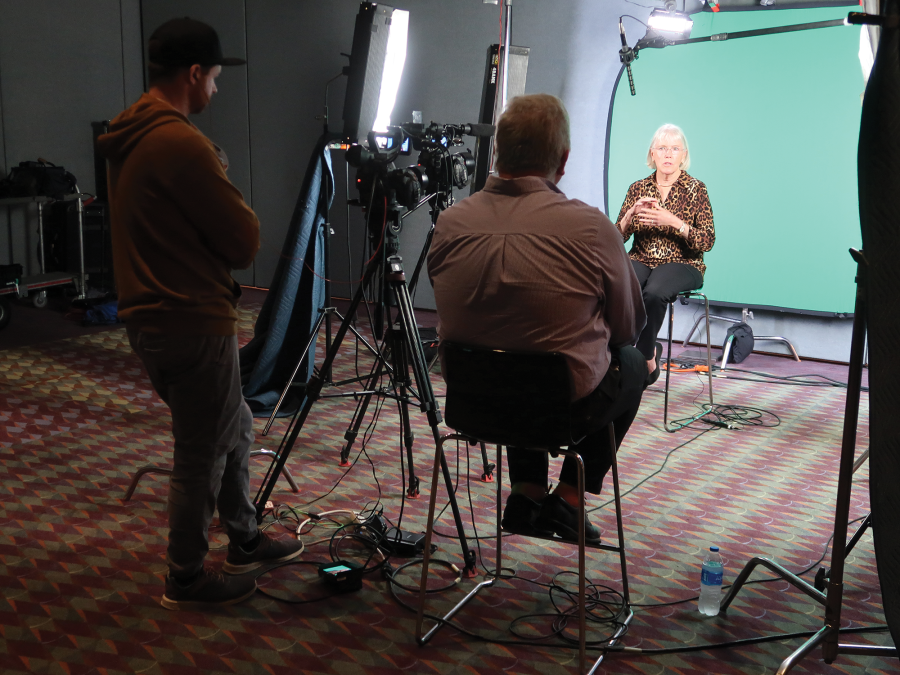The deaths of two amusement industry legends in 2004 made then-IAAPA board member Paul Serff realize that their memories, stories, and experiences—and stories from the many before them—were lost forever.
Serff and the IAAPA Board of Directors discussed what could be done and the following year, the IAAPA Oral History Project was born. Park historian and IAAPA Hall of Fame Committee member Jim Futrell was tagged to head up the initiative.
“My first video interview during that Expo was Ed Carroll, former owner of Riverside Park in Agawam, Massachusetts,” Jim told me, noting that he did five interviews that year and all went well. With no reason to stop, the program continued and is thriving today.
Primarily conducted at IAAPA Expos, Jim has conducted interviews in Orlando; Atlanta; Gothenburg, Sweden; Barcelona, Spain; and Hong Kong. If the person to be interviewed can’t get to an Expo, Jim heads out to their homes, which has taken him throughout Europe and the U.S.
Going into IAAPA Expo 2022, Jim had conducted 159 interviews over 17 years. The aim of each interview is to capture at least 30 minutes of video with the subject sharing stories about his or her career that offer guidance and inspiration. However, some sessions go on longer. Bob Rogers of BRC Imagination Arts told stories for three hours. The second longest was mine, at 2:45. “I just let the cameras roll. I don’t stop them,” Jim says. “It’s an opportunity to learn history from those who made it. We want their history and stories to be told and more importantly, be preserved.”
Subjects for the interviews are chosen from a wide constituency of IAAPA membership.
“We began with past chairmen and IAAPA Hall of Fame members, then we started reaching out further in our membership, adding more diversity as our ability to do more increased,” Jim says.
People regularly asked what was going to be done with the tapes. The answer for years was, “we don’t know.” It was Jack Morey, then chairman of the IAAPA Hall of Fame committee, who pushed the association to approve getting the tapes edited and then offer those versions on IAAPA.org. He saw them as mini-TED Talks.
Currently, there are 44 completed interviews on IAAPA’s website, with four more in the process. Futrell points out that preserving the voices of legends and visionaries who tell their own stories adds valuable history, further understanding, and culture to any industry, especially one as vibrant as the global attractions industry that IAAPA represents.
Jim’s first interview at November’s IAAPA Expo in Orlando was with Bobbie Wages, who has served the association in many ways, bringing her lifetime of experience in the park and hospitality industries to the committees and boards on which she has served. I sat in on the interview with Bobbie and was impressed how smoothly it went—while I enjoyed the interesting stories she shared.
“We started out in 2005 with one camera and used videotape. Now, we have two cameras, a green screen behind the person, and it’s all digital. We’re able to keep up with technology and offer a renewed, quality product.”
According to the mission statement, the IAAPA Oral History Project is to “honor the attractions pioneers, trailblazers and risk-takers, the people whose vision, passion and persistence built a great industry. In so doing, we hope to educate those who currently carry the torch and inspire the next generation of global attractions industry leaders.”
Mission accomplished.
» Hear from visionaries in their own words with the IAAPA Oral History Project at IAAPA.org/History

